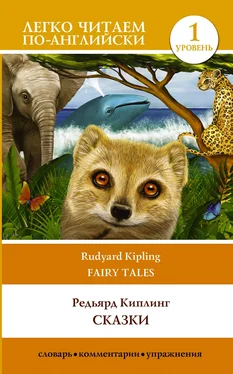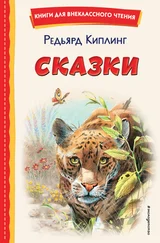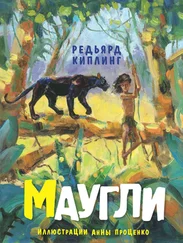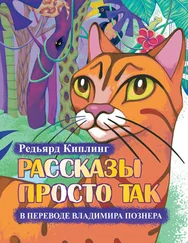Редьярд Джозеф Киплинг
Сказки / Fairy Tales. Уровень 1
© Матвеев С.А., адаптация текста, комментарии, упражнения, словарь
© ООО «Издательство АСТ», 2021
Rudyard Kipling
Fairy Tales
How the Whale got his throat
In the sea, once upon a time, there was a Whale, and he ate fishes. He ate the starfish and the garfish, and the crab and the dab, and the plaice and the dace, and the skate and his mate, and the mackerel and the pickerel, and the eel. All the fishes he could find in all the sea he ate with his mouth – so! But at last there was only one small fish left [1] there was only one small fish left – осталась только одна маленькая рыбка
in all the sea, and that was a small Astute Fish [2] Astute Fish – Мудрая Рыба
, and it swam a little behind the Whale’s right ear. So the Whale could not catch it. Then the Whale stood up on his tail and said,
“I’m hungry.’
And the small Astute Fish said,
‘Noble and generous Cetacean, did you taste Man?’
‘No,’ said the Whale. ‘ What is it like? [3] What is it like? – На что это похоже?
’
‘Nice,’ said the small Astute Fish. ‘Nice but nubbly.’
‘Then fetch me some,’ said the Whale, and swam away.
‘If you swim to latitude Fifty North, longitude Forty West [4] latitude Fifty North, longitude Forty West – пятьдесят градусов северной широты, сорок градусов восточной долготы
,’ said the Astute Fish, ‘you will find a man. He is sitting on a raft, in the middle of the sea, he has only a pair of blue canvas breeches, a pair of suspenders, and a jack-knife [5] jack-knife – складной нож
. He is a shipwrecked Mariner.’
So the Whale swam and swam to latitude Fifty North, longitude Forty West, as fast as he could swim. And the Whale found one single, solitary shipwrecked Mariner. The Mariner was on a raft, in the middle of the sea. He had a pair of blue canvas breeches, a pair of suspenders, and a jack-knife.
Then the Whale opened his mouth back and back and back till it nearly touched his tail. And then he swallowed the shipwrecked Mariner and his raft, and his blue canvas breeches, and the suspenders, and the jack-knife. After that the Whale smacked his lips, and turned round three times on his tail.
But when the Mariner found himself [6] found himself – оказался
inside the Whale’s dark stomach, he stumped and he jumped and he thumped and he bumped, and he pranced and he danced, and he banged and he clanged, and he hit and he bit, and he leaped and he crept, and he prowled and he howled, and he hopped and he dropped, and he cried and he sighed, and he crawled and he bawled, and he stepped and he danced. The Whale felt very unhappy.
So the Whale said to the Astute Fish,
‘This man is very nubbly, and besides I hiccup because of him. What to do?’
‘Tell him to come out,’ said the Astute Fish.
So the Whale cried to the shipwrecked Mariner, ‘Come out and behave yourself [7] behave yourself – веди себя прилично
. I hiccup because of you.’
‘No, no!’ said the Mariner. ‘Take me home first!’
And he began to dance again.
‘You must take him home,’ said the Astute Fish to the Whale. ‘There is no other way.’
So the Whale swam and swam and swam, with both flippers and his tail, as fast as he could. At last he saw the Mariner’s land, and he rushed to the beach, and opened his mouth wide and wide and wide, and said,
‘Walk out!’
And the Mariner walked out of his mouth. But the Mariner was very cunning: he took his jack-knife and cut up the raft into a little square grating, and he tied it with his suspenders, and he dragged that grating into the Whale’s! Then he sang the song:
With this grating,
I stop your eating.
After that the Mariner stepped out on the shingle, and went home to his mother. Then he married and lived happily enough.
But from that day on, with that grating – which was in the Whale’s throat – the Whale could eat nothing except very, very small fish. That is the reason why whales nowadays never eat men or boys or little girls.
The small Astute Fish went away and hid himself in the mud. It was afraid that the Whale was angry with it.
How the Camel got his hump
In the beginning of years, when the world was so new, and the animals began to work for Man, there was a Camel. He lived in the middle of a Howling Desert [8] Howling Desert – Ревущая Пустыня
because he did not want to work. Besides, he was a Howler [9] Howler – Ревун
himself. So he ate sticks and thorns and tamarisks and milkweed and prickles. When anybody spoke to him he said ‘Humph!’ Just ‘Humph!’ and no more.
Presently the Horse came to him on Monday morning, with a saddle on his back and a bit in his mouth, and said,
‘Camel, O Camel, come out and trot like the rest of us.’
‘Humph!’ said the Camel; and the Horse went away and told the Man.
Presently the Dog came to him, with a stick in his mouth, and said,
‘Camel, O Camel, come and fetch and carry like the rest of us.’
‘Humph!’ said the Camel; and the Dog went away and told the Man.
Presently the Ox came to him, with the yoke on his neck and said,
‘Camel, O Camel, come and plough like the rest of us.’
‘Humph!’ said the Camel; and the Ox went away and told the Man.
At the end of the day the Man called the Horse and the Dog and the Ox together, and said,
‘You three, I’m very sorry for you; but that Camel in the Desert can’t work. So I want to leave him alone, and you must work double-time.’
That made the Horse and the Dog and the Ox very angry, and they discussed the situation with the Camel on the edge of the Desert. But the Camel chewed milkweed and laughed at them. Then he said ‘Humph!’ and went away again.
Presently the Djinn appeared. He was in charge of [10] in charge of – в ответе за
all deserts. The Djinn rolled in a cloud of dust (Djinns always travel that way because it is magic), and he stopped to talk to the Three.
‘Djinn of All Deserts,’ said the Horse, ‘is it right for anyone to be idle’
‘Certainly not,’ said the Djinn.
‘Well,’ said the Horse, ‘there’s a Camel in the middle of your Howling Desert with a long neck and long legs, and he does not work at all. He doesn’t want to trot.’
‘Whew!’ said the Djinn and whistled, ‘that’s my Camel! What does he say about it?’
‘He says “Humph!”’ said the Dog; ‘and he doesn’t want to fetch and carry.’
‘Does he say anything else?’
‘Only “Humph!”; and he doesn’t want to plough,’ said the Ox.
‘Very good,’ said the Djinn. ‘I’ll humph him if you wait a minute.’
The Djinn rolled himself up in his dust-cloak, and flew away. He found the Camel most idle. The Camel looked at his own reflection in a pool of water.
‘My friend,’ said the Djinn, ‘they say you don’t work. Is it true?’
‘Humph!’ said the Camel.
The Djinn sat down, with his chin in his hand, and began to think. The Camel looked at his own reflection in the pool of water again.
Читать дальше












